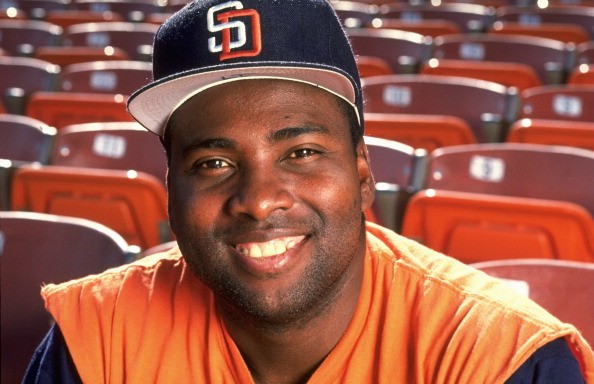The widow of Tony Gwynn, and his two adult children, filed a wrongful death suit against various corporate tobacco interests and individuals associated with the industry on Monday.
The trio seeks damages, burial costs, litigation expenses, and other remuneration for the death of the first-ballot Hall of Fame baseball player. The plaintiffs filed the 57-page brief in California Superior Court in San Diego, where Gwynn attended San Diego State University and played his entire professional 20-year baseball career for the Padres.
“Collectively, the Defendants are the companies and individuals that manufactured, adulterated, and pushed on the public the tobacco products that led to Gwynn’s death, all the while falsely denying the products were dangerous or addictive, and engaging in a world-wide campaign to continually recruit under-age users,” the suit alleges. “This case seeks to hold them responsible for killing a baseball legend and a wonderful human being.”
Gwynn died of salivary gland cancer two years ago after dipping smokeless tobacco for 37 years. The court documents claim that the right fielder dipped one-and-a-half-to-two tins of Skoal every day under the right side of his lower lip. It states that he often fell asleep with a dip still in his mouth and started the day with a pinch of Skoal. As a result of the generosity of the Phillip Morris Company, renamed Altria after the end of Gwynn’s career, Mr. Padre “would return home with logs and logs of free Skoal dip.”
The suit blames Cherry Skoal for seducing minors like the 17-year-old Gwynn into the addiction, points to Houston Oilers-great Earl Campbell’s endorsement of smokeless tobacco as a cynical gimmick to get African Americans like the lifetime .338 hitter hooked, and names three as defendants who gave out free samples of dip and sponsored a “Skoal Brothers” softball team at San Diego State when the 3,000 Hit Club member attended in the late seventies.
The suit places responsibility on such forces, rather than Gwynn himself, for the eight-time NL batting champion’s demise. The brief maintains, “Defendants manipulated Tony by getting him addicted to their tobacco products.”

COMMENTS
Please let us know if you're having issues with commenting.